MUGGED IN RIO
...
Sunday 8 October.
I had walked out of my job and was looking for work. I had flown to Brazil.
An almost empty bus sped me from Rio airport to the centre of the city. The sky was full of black tropical clouds, but the air was warm and getting warmer. There were shanty towns, or favelas, built out over the waters of the bay, and beside the docks there were very seedy bars.
The smiling Negro bus driver, speaking in Brazilian Portuguese, said something about Pele. I tried to explain that I was looking for a hotel. He dropped me off near the end of Avenida Rio Branco in the dictrict called Centro.
It being early on a Sunday morning, there were few people about. As I walked, I was very much aware that Rio is a city of steep little mountains and hills. I climbed a hill covered in crumbling villas. A yellow tram clanked by.
Coming to a hill topped by a favela I wandered up to a ridge near the top. I sat down in front of a row of blue, yellow and white home-made shacks, took out my writing pad, and began to sketch the scene before me. The sun broke through and below me I could see Sugar Loaf Mountain and a sea of brilliant blue.
Some ragged children materialised. They introduced themselves as Edison, Flavio, Ricardo and Fatima; and one had the surname of Anderson. Edison sat beside me and taught me how to count in Portuguese. Ricardo grabbed my pen, pretended to run off with it, and then returned it with a grin. I held out a plastic cup to indicate that I was thirsty. Edison took it to his shack and returned with it full of water.
A Black youth, dressed in Sunday-best shirt, explained in a mixture of sign language and Portuguese, that this was an area of machine gun battles and murder. The black youth led me down the hill, pointed to a hotel, the Hotel Globo, and then climbed back up his hill.
My room in the Globo had no windows, but it was cheap.
I walked along Copacabana Beach, where sky-scraping waves break on white sands, where bronzed bodies play under the palm trees, and where sparkling yachts sail beneath steep jungly mountains. My shoulders began to ache as I walked across railway tracks, over and under hills, and across motorways with killer traffic.
I was getting near to the cemetery. On the grass verge, at the side of the motorway which runs along the shore, I came across four plates. On two of these there was some food. On the other two were dead black crows. The sun disappeared rather suddenly and I retreated to my windowless room in the Hotel Globo.
By alobos Life
Monday 9th October
By André Pinnola
Tuesday 10th October
By Ratão Diniz
I set off uphill. It was a steep climb up steep steps cut into the rock, on either side of which were piles of rubbish and the shacks of the slum dwellers.
By Bruna Prado
Monday 9th October
A bus took me past green and gold luxury flats with uniformed doormen, and past lively black slums, to Copacabana Beach. My map told me the beach was near the English Church, where I hoped to find information about jobs.
At the far end of the beach I found a bar. That was where I met Hilton, a retired Brazilian airforce warrant officer. Over beer and sandwiches, Hilton explained that he had worked for two years in Manchester, in connection with the purchase of aircraft for the Brazilian airforce.
Hilton was rich. He took me to his luxury flat, one street from the beach, to introduce me to his wife, and to show off his English furniture, English wallpaper, and English beer mats. Hilton's wife wanted to live in England as it was her ideal country.
Her daughter, now married to a Hollywood film producer, had had her photo in the Daily Mirror and the Sun, and was Brazil's 'most famous' model. She looked fantastic! We ate roast beef, drank some beers, and I postponed my visit to the church.
Tuesday 10th October
On Tuesday morning, at the British Consulate on Praia Flamengo, the lady at the desk told me she could not help me to find work. She said that even if I found a job, I might not get an identity card from the Brazilian government.
I walked to the English Church. It was very English.
Soon I was chatting to Walter Girdwood who runs the office at the church. Walter had come to Brazil just after World war I, at a time when influenza was killing millions of people.
Walter suggested I get a job on a Brazilian oil rig. Alternatively, there was a school in the mountains that wanted a teacher. But, they would probably want someone fluent in Portuguese. The chaplain was not at home, so it was suggested I return the next day.
Where was the school-orphanage that might want a teacher? Walter pointed vaguely in the direction of the nearest hill. He said the place was called 'Cidade de Meninos'.
I set off uphill. It was a steep climb up steep steps cut into the rock, on either side of which were piles of rubbish and the shacks of the slum dwellers.
The favela houses looked surprisingly solid, considering that they were made out of old scraps of wood. There were healthy-looking children, mainly brown and black in colour, and some of them had school satchels. The people seemed friendly in an amused sort of way. Dogs barked and birds flew about and there were some enormously large beetles scurrying about among the refuse.
As I climbed higher up the mountain the view of the sea and all the sugar-loaf-shaped mountains became more and more amazing.
A black lady seemed to take pity on me. Perhaps she thought this was no place for tourists. I asked her where the 'Cidade de Meninos' was, and she in turn asked three small schoolboys to guide me. Had the lady understood what I was saying? The boys led me down through steeply wooded slopes to the more civilised part of town, and left me at a bus stop!
I took the first bus that came along and ended up at the Pedro II station in Centro. This bright, clean station contained shops, live music, and cafes selling sorbets, sundaes and hamburgers. I bought a hamburger and watched the silvery cooking surfaces being polished. A fair-haired, bare-footed child was swooshing water around the floor with a mop.
Back at the Hotel Globo, I examined the bites from the bed bugs and mosquitoes.
Wednesday 11th October.
During the night there had been a lot of shouting in the hotel. When I went down to breakfast I noted that at the hotel's front door there was a smartly dressed marine on guard. Breakfast was bread and jam and coffee at a large shared table. My fellow guests included pulchritudinous young girls with overly tight blouses and pleasantly short skirts.
Out at Christ Church, the Rev. Roger Blankley was holding a communion service. When that had finished, Roger gave me a list of people I should try to see at the British Council.

Christ Church
Near the beach, and under Sugar Loaf Mountain, I found the British Council's pleasant villa. As I waited in the reception room, I studied a BBC World service pamphlet and noted two programmes: 'Rescued in Time - four people tell of their rejection of a former way of life...', and, 'Mr Kettle and Mrs Moon: George Kettle decides one day that he has had enough...'
Mr Hughes of the British Council explained that the Council only recruited from London. He claimed that the Brazilian authorities were tightening up on teachers from England who had no visas.
At the 'English Culture Centre', I was told that there was a whole industry involved in arranging visas for foreigners. You could pay around £100 to a 'fixer.' But first, you had to find a job. The Brazilian lady who was telling me all this said, "I'd love to live in England. I feel I've been there in a previous life."
...
Thursday 12th October
I walked along Rio Branco avenue with its skyscrapers, its joggers, its doll-like school girls, and its street musicians. I passed several airline offices, but decided it was not yet time to give up and buy a return ticket.
Copacabana beach was bathed in sunlight and the beach umbrellas were dazzlingly bright. But more interesting than the surf and sand were the steep green mountains with their multi-coloured shacks. I walked towards the shanty towns just behind the beach. Municipal lorries were collecting some of the refuse from the concrete chute running down the mountain between the slum houses.
I entered the favela on the Morro de Cantagalo. The houses were of brick and the feeling that this was one of the more civilised favelas was increased by the presence of kids in school uniforms.
Sitting down at the side of a path I began to sketch the view before me. Far to the right was a sugar loaf shaped mountain and in the far distance were islands rising steeply from the sea. Immediately below me were telephone wires, a red tiled roof, a black woman in white plimsoles hanging up washing in her yard, and a duck and a sleepy cat.
Three boys, one carrying a happily chirping bird in a cage, came wandering along the sunny path and then sat down to watch me drawing.
An older youth appeared. He had an unsmiling gorilla face and gorilla shoulders and he was smoking hashish.
He wanted to know if I smoked.
No.
He seemed to be telling me to go and gave me a shove to help me on my way.
I followed one of the small boys, aged about eight, back down the hill in the direction of the beach. We came to a fork in the path and the small boy seemed to want me to take the right fork.
Seconds later there were muscular arms around my neck and I was being held down on the ground by the youths. There was strong pressure on my Adam's apple. I didn't make any resistance. Hands stretched out to take my wallet, my money belt, my wrist watch, my pen, my glasses, my small change and my passport. There was about one thousand dollars in cash in the money belt. Then they were off round the corner.
I remained on the ground, somewhat bemused. An old man with a stick, who had earlier watched me drawing, walked slowly past.
A middle aged lady with sunglasses and an unsmiling face came round the corner carrying my empty wallet and my passport. She handed them to me. A little schoolgirl picked up my sketches and handed them too me gravely. The lady with the sunglasses wanted me to leave the favela immediately. Taking my arm, she almost dragged me along the path. We were now being watched by several funereal faces. At the bottom of the hill, the lady with the sunglasses departed.
As I sat at the edge of the road thinking what to do next, a woman from the nearest block of flats came across and spoke a few words. It appeared that in her block there was a young Englishman from Winchester called Roger. Roger duly arrived and took me into his comfortable flat for a drink. All I wanted was water.
Roger explained that having come to Rio on holiday, he had decided to stay, and had found himself a teaching job.
He considered I was crazy to go into the favela. "The last person who went in there, an American, got killed," he said. "You know the police only go in with helicopters and machine guns."
I was not sure whether or not I wanted to meet the Rio police, but Roger, having no love of the criminals in the favelas, insisted on driving me in his Volkswagen to the local police station.
"How many people attacked you," asked one of the officers behind the high desk at the entrance to the police station.
I could not be sure.
"What was the oldest one dressed like?" I could not remember. Perhaps he was wearing a red shirt.
What make of watch? I couldn't remember.
"Did you go into the favela to buy drugs?"
"I went to draw some sketches."
The police officers grinned. They wondered why I too was grinning.
"Let your Queen Elizabeth get your money back," joked one officer.
Then I was sent to to another building, in another street, to see the military police, giants with helmets and boots. I briefly repeated my story.
Eventually, at a third police station, I was taken down stairs to view the inmates of the cells, large cages below street level. One cell was filled with tiny street urchins. The other was crowded with tough, desperate looking, black youths. I did not recognise any faces. At this point the police seemed to lose interest and I was shown the door.
Without my glasses it took me a little while to find the British Consulate, but, when I arrived there I found the lady behind the desk was sympathetic.
"It happens all the time," she said. And she went on to explain that she could not wait to leave Rio in order to start a new life in Australia.
A young New Zealander and his Brazilian girlfriend were also visiting the consulate. They hoped to get married. But the lady behind the desk was suspicious and whispered something to me about the girl probably being a whore.
The consul was a wonderfully friendly young man in a suit. He advised me about how to have money sent out from Britain.
"Where are you staying?" he asked.
"Hotel Globo."
The consul looked surprised that I should be staying in such a low-life hotel. He gave me a few, very few, cruzeiros. And took away my passport, which he assured me would be returned when I repaid him. Then the consul and his tall young side-kick took me down the street to the local bar. The consul seemed to stagger a bit both before and after our entrance to the bar.
...
Friday 13th October
On the beach on Praia de Flamengo, I sat watching the Cariocas: mafia types with showy clothes, police in Volkswagens, black women in green trousers sweeping the pavements, men in straw hats selling drinks from drums under their arms, and fair haired kids doing Kung Fu.
In the Consulate there was still no word of my money arriving from England. The New Zealander had obtained his documents by paying money to a 'fixer'.
In the evening I walked to the Anglican Church where I knew they were having a Curry Supper. From the courtyard of the church I stared up at the lights of the shanty town on the mountainside. Women and children were climbing up and down carrying water containers and food.
The chaplain was thin, probably in his forties, and had the sort of warm, kindly face and voice you associate with people who have lived among the poor. The chaplain had worked with Indians in the jungle. In his comfortable sitting room I was introduced to the chaplain's smiling wife and to two new Zealanders, Ian and his sister Marylyn, both in their twenties, both on holiday. Ian ran a Christian bookshop in Chile and believed that Pinochet was popular, at least among the rich.
There was a large attendance at the curry supper, mainly business people. And among the throng was Mike, from Guardbridge in Scotland, and his wife Katie. The saintly Mike and Katie offered me a bed in their luxury flat off Copacabana beach. Wonderful people the Scots!
..
Saturday 14th
After breakfast with Mike and Katie I strolled along Copacabana beach. And that was where I met a Lieutenant Colonel in the Brazilian airforce who had once been military attache in Tokyo. He told me all about Geisha girls while we enjoyed beers in a bar.
Sunday 15th
Lunch at Mike and Kate's flat was shared with a Brazilian businessman and his fiance and their small daughter. The Brazilian, who looked like Mussolini, had views on race similar to those of Hitler. He did not like Blacks.
After lunch Mussolini drove us in his Volkswagen up into the forested hills at the back of Rio in the direction of Corcovado, the famous statue of Christ. Through the fog we could make out the dark favelas and beside them the luxurious houses of the rich. The fog thickened and Mussolini's search for Christ became increasingly difficult. The jungle seemed to close in around us and the petrol tank was almost empty. Mussolini gave up and headed back to the centre of town. Here, Mussolini showed us, from the safety of the car, the attractions of the red light district.
Monday 16th
My money arrived at the Bank of London and South America. Having collected it I guarded it carefully as I set off for the office of Air France. And so, back to London, and, after a few weeks, a new job! That was 1979.
My memories of Rio: the most supernatural, sensuous, and spellbinding place in this or any parallel universe.
Think of the tall dark Tijuca mountains, tall dark tropical trees, tall skyscrapers, the peak of Corcovado surmounted by the statue of Christ, Sugar Loaf mountain, sparkling Guanabara Bay, Copacabana, yellow trams, long-legged girls with dental floss bikini bottoms, seductive carnival music, sambas, street children hoping not to be murdered by the police .....
Oil drums, bright blue walls, spiritist statues, corrugated iron, banana trees, washing lines, kids flying kites...
You will be haunted by Rio's strange sounding church bells, its mists rolling in from the sea and its beautiful people.
Labels: Brazil, Centro, Consul, Edison, English Church, favela, Girdwood, Globo, Guardbridge, Hilton, Katie, Mike, model, mugged, Olympics, Rio de Janeiro, Roger, Roger Blankley
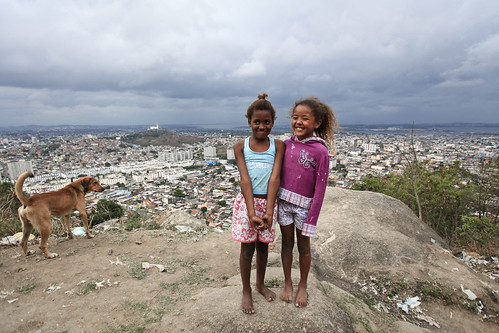
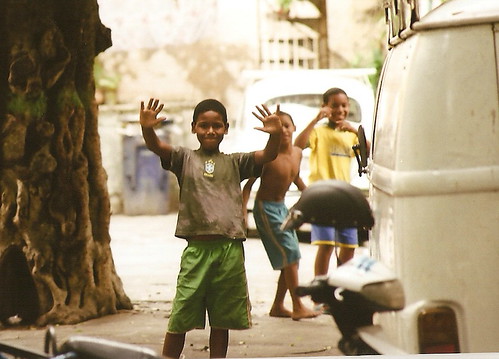



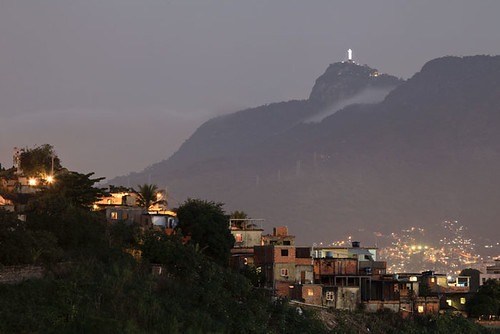
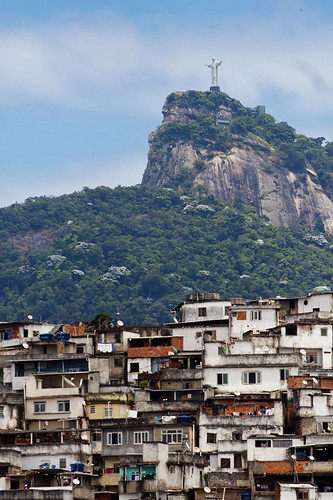
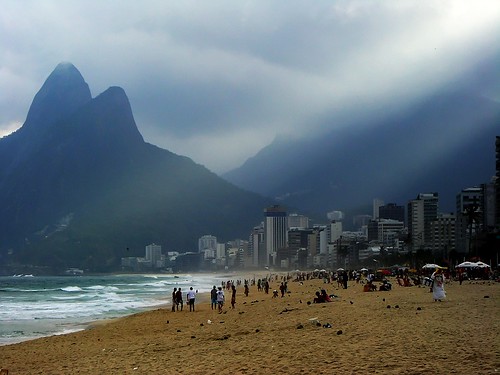

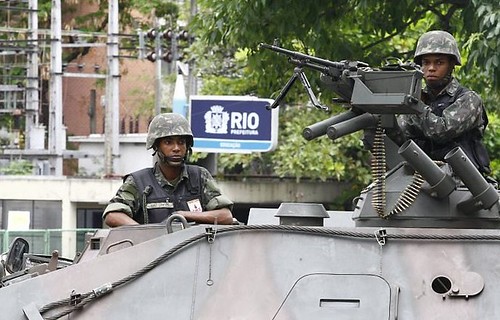
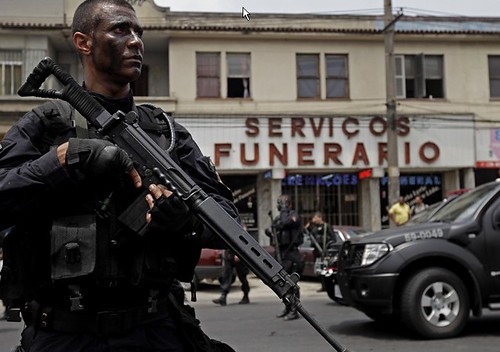


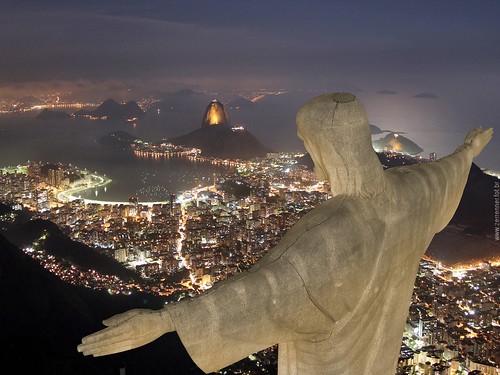
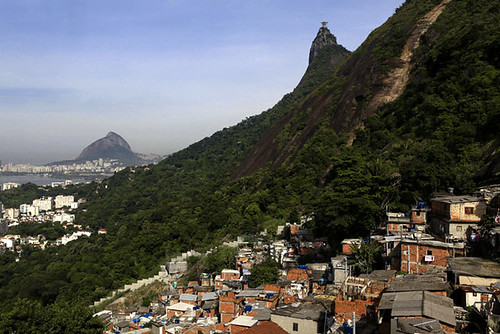
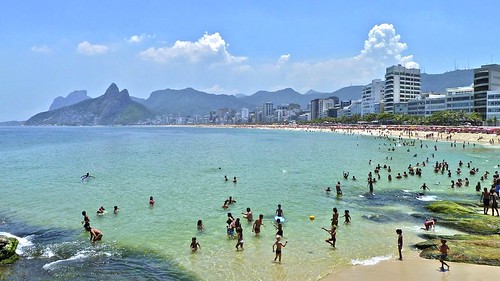

4 Comments:
Clinton Cash - Official Movie Premiere
https://www.youtube.com/watch?v=td2pyyCau30
Published on 25 Jul 2016
Clinton Cash, is a feature documentary based on the Peter Schweizer book that the New York Times hailed as “The most anticipated and feared book of a presidential cycle.”
Clinton Cash investigates how Bill and Hillary Clinton went from being “dead broke” after leaving the White House to amassing a net worth of over $150 million, with over $2 billion in donations to their foundation. This wealth was accumulated during Mrs. Clinton’s tenure as US Secretary of State through lucrative speaking fees and contracts paid for by foreign companies and Clinton Foundation donors.
Ur goes wrong towards the end, it makes out Putin to be wicked and Russia as evil. Real cold war stuff, but were know here on this site that Putin is nothing like that at all.
I enjoyed reading that, cheers Aangirfan, I really appreciate your work. Namaste xxx
Nice Rio story. I'm fortunate to have spent 3 months in Brazil without any mugging or any problem. It was a peaceful and happy experience.
Post a Comment
Subscribe to Post Comments [Atom]
<< Home